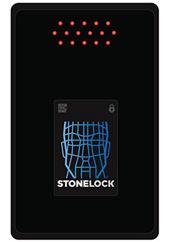12/03/2009
"The security industry tends to get hung up on features that normal people find obscure"
By Christian Schiller
Can you give a brief description of Paxton Access?
- Paxton Access is a manufacturer of electronic access control products. We design and manufacture all of our products in-house. In terms of market size, I would say that we sell more of our type of system than any other manufacturer in the UK. We have a healthy share of export business, which is increasing rapidly.
Give your view of where the security market is today?
- I think the security market today is fairly resilient against the ongoing recession. I don't think it's recession proof, but I do believe it can stand up better than many other markets. One important thing that affects security installers is the ongoing transition towards IP solutions. Now, traditional IT companies are securing a larger part of access control installations than before. Some installers are adapting to this new IP environment, and some are not. This will probably become an increasing problem for some of the companies in the security market. When technology like this shifts, it usually takes longer than people expect, but it does eventually happen. Simply put - you need to adapt, or else you go bust.
Looking at your product range I can't find any biometric products, why is that?
- That's true, at the moment you can't. Imagine that you were an alien and you came down to a security exhibition like IFSEC, the amount of biometric products you would see being demonstrated would lead you to think that nothing else gets installed. That's just not true at all. Biometrics still account for much less than five per cent of the market. They are still fairly specialised and haven't been integrated adequately into mature access control networked products. This is for several reasons; one reason is the requirements of the comparison algorithms in terms of processor and memory requirements. There are also problems with the way that some manufacturers have actually started developing this sort of equipment, not to mention the limitations of the actual reading technology. Most of the access control systems that we sell are RFID, so essentially you carry a token and you get access to the building. There are different biometric solutions, and we have adopted an open policy of providing technical information on how to connect a wide range of biometric readers with our products. While the technology is being perfected, this is the stance that we are adopting. We will have a biometric solution when the time is right, and when we do, it must adhere to some very strict criteria. Firstly, it must not be reliant on a PC to make a decision, because then you introduce a central weakness. Secondly, you must be able to add a finger, eye, or similar, to the system with the same ease as adding a token. The actual implementation of a biometric solution is really crucial.
What are the hottest trends within the access control market right now?
- I think that the move towards TCP/IP is a hot trend, but then almost everyone will say that. Most will also mention biometrics, with which I disagree. I don't think that biometrics are a hot trend at all. The hottest trend as far as Paxton Access is concerned is to make PC based access control relevant and practical for a large number of installers, and a larger number of premises.
When I look at some of your readers, they are quite stylish, is it important to have "designer" products in an access control product portfolio?
- Yes, I think so. We have had a designer range of readers for the last two years. It does get attention for sure. I think we in the security industry tend to get hung up on features that normal people find quite obscure. They don't really care about them. Things like how the reader actually looks when it's installed into your expensive building is often much more relevant to someone that is underway to spend £10,000 on an access control system. So yes, they give us some good differentiation and I do think they are important. The funny thing is, sometimes customers show initial interest in our designer readers, but in the end they go for something else in our range. So it drives attention. It may be a little superficial, but it works.
You mentioned that Paxton Access hadn't felt any slowdown due to the financial turmoil yet, but what's your view of the security market as a whole?
-The slowdown is here but access control still seems to be holding up well. You can look at a recession in several ways; first let's assume that in the current climate businesses have less money to spend on security. With access control that may mean that instead of fitting every door in a building, only a selected few crucial ones will be integrated into the security system. This is the way that I think it can affect us. We can, however, use this to our advantage. We have a lot of competitors charging far more than us for access control equipment. That puts us in a situation where we can say that instead of reducing the number of doors, why don't you use Paxton Access equipment and save some money. I think it's simply a balancing game that you just need to know how to play.
A bit far fetched perhaps, but some claim that the security industry would prosper in bad economic times facing an overall increase in crime. What's your position on that?
- I don't think that's far fetched, I think it's an absolute fact. But for an activity like that to be felt on a scale, the downturn would have to be very significant. The chain of reactions for such a scenario would also have to be much delayed before it took effect on larger sales for security companies.
Paxton Access is very rapid in its product development, how does your R&D work?
- Our owner isn't solely reliant on the income of Paxton Access. This means that we have the freedom to invest the profits back in to the company's product development. Around two years ago we decided to operate in this way. We have increased our workforce within the R&D operations quite significantly.
We have been growing nicely for the last decade. We are ten times bigger than we were ten years ago. We want to be ten times larger in ten years time. The bigger you get, the more you have to try. Our commitment to development is part of this process.
Which end-user sectors are generating the most income for you now?
- We have always focused on ease of use and ease of installation, everyone talks about it but we work hard to do it. Also, we focus on the support side of our business, always trying to give installers the help they need in the best way possible. This means that our main gain area has traditionally been intruder alarm installers, CCTV installers and even lock smiths who see the benefits of branching out into access control. We have never competed for huge enterprise systems; we let our competitors fight over them. We prefer to focus on the small to medium businesses with between one and 40 doors, and fortunately, there are more of those types of system required than any other.
Describe the export side of Paxton Access?
- We have offices in France, USA, Germany and Ireland. We also have distributors in most important countries. The largest export markets are Japan, Scandinavia and Holland and Belgium, the latter not a giant market, but for some reason very good for us.
Which are your main competitors?
- The UK/Ireland manufacturers competing with us would be PAC, TDSI, ACT and BPT. HID has recently come out with a new access control system, so I would consider them a competitor as well.
What would you say differentiates Paxton Access the most from your competitors?
- Support has got to be our number one differentiator. We are simply fanatical about customer service, and I really mean that. I'll give you two examples to prove my point. The first one is that if any installer in the UK buys any of our products through one of our distributors and encounters a problem with the product (including a problem caused by the installer), we will accept a return and either replace or repair it. We call it the ultimate returns policy. It's based on the principle that most installers are genuinely just trying to do the job of installing our products. If we take away the hassle of replacing products, we make life easier for the installer. If we make life easier for installers, then they install more of our equipment. When we launched our returns policy, everyone told us that we were absolutely mad and that it was going to cost us millions of pounds. Surprisingly, our product return rate didn't go up. The only way we could achieve this is through absolute confidence in our products. It's working brilliantly and installers absolutely love it. If you were an installer, this would mean a lot to you. With other manufacturers, to get a product replaced is quite often a real nightmare. It can involve a lot of phone calls, and stress!
The second example involves our feedback transparency. We receive about 350 calls from installers every day and after every phone call we have handled, we send an e-mail to the person who called asking how we did. There is a rule that someone intelligent once said; you should make it easy for your customers to complain, because if you make it difficult, you don't know what's going wrong. We get around 20 feedback emails returned to us every day. What makes this unique is that we publish this feedback live on our website. The good, the bad and the average stuff all go online. We publish everything anonymously but it's there for everyone to see. Every day we select a random comment that will be posted in a central spot of the homepage, of course all the rest is also easily accessible. Whenever we get bad feedback, it's emailed to everyone in the company. The result is a call from one of our directors to the unhappy customer to find out how we could have served them better. This has lead to real enhancements in the way we work.















